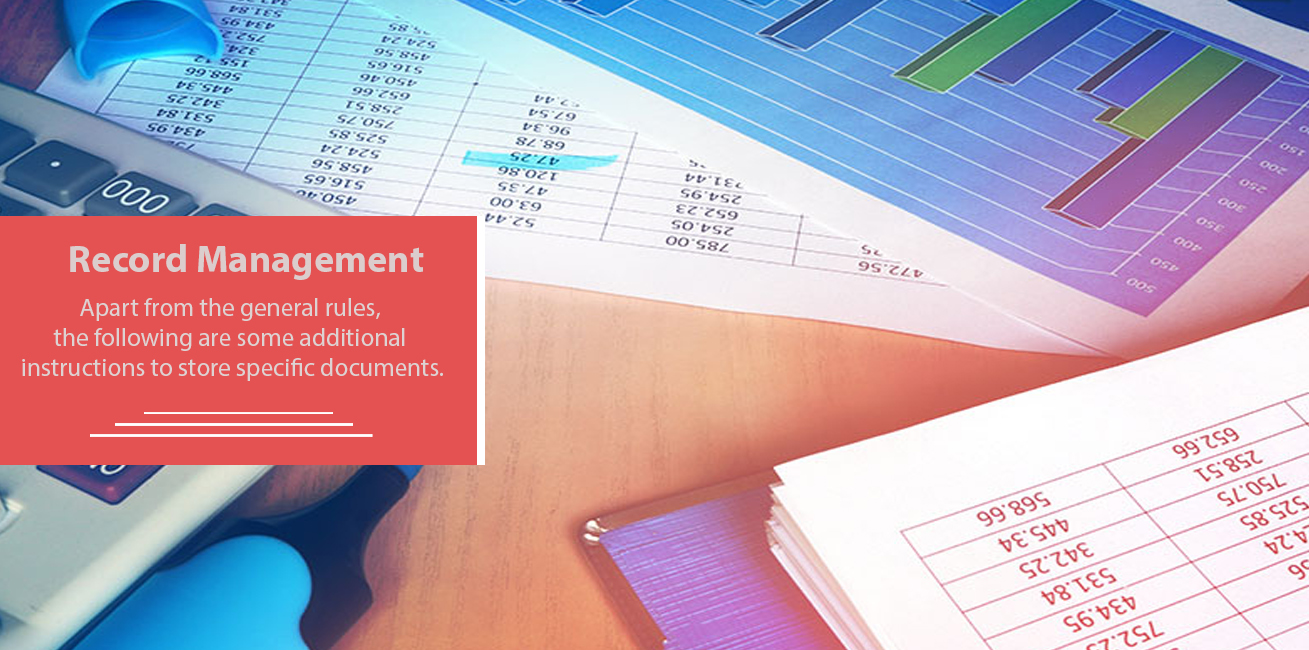In the modern paperless era, record management looks extremely boring. However, documents such as sales invoices, tax returns, bank statements, expense receipts, and payroll records come with a lot of legal responsibility. Even if you don’t use them for future reference, businesses are legally obliged to save essential data for a certain amount of time. it is imperative for every business to understand the process of business record management and store corporate files methodically.
Conventionally, there are a few basic guidelines that are followed internationally to ensure the effective storage of sensitive information. The Internal Revenue Service has established some rules and regulations which describe the length of time to keep documents. These rules vary depending on the type of information stored by an organization. Documentation related to tax returns should be kept until the due date of tax returns runs out. Most lawyers and bookkeeping services recommend a time period of seven years to store original documents related to tax audits and lawsuits. It is also advised to keep extra copies of your tax returns in order to ease the process of taxation in the future.
Apart from the general rules, the following are some additional instructions to store specific documents.
Payroll tax records:
Tax deduction upon the salaries of your employees might seem like a monthly or annual task but it shouldn’t be taken lightly. This process includes all information regarding sheets, employee information, and benefit payments. Therefore, according to experts, employee tax records should be stored safely for almost four years from the date you paid the taxes.
Employee records:
Collecting and updating information about your employees is significant for every company. The information of your staff includes all sorts of personal data, resume, performance reviews and other human resource files. However, you don’t have to keep them for decades after they’ve left your company. According to IRS, the recommended timespan to keep records of a former employee is seven years. Additionally, if a worker is injured during their stay at your organization, it is advisable to store any relevant data after making the compensation. This will help you avoid false insurance claims in the future.
Recruitment information:
According to international standards, if your business has more than 15 employees, there are certain laws that must be kept in consideration such as the Age Discrimination in Employment Act (ADEA). These laws shed light on how an organization should be managing their hiring records. Therefore, if you fall under a certain category, it is mandatory to keep an eye out for legal obligations while managing recruitment information.
Ownership Records:
Every business owner is well known about the importance of ownership documents. Formation documents such as articles of organization (for LLCs) and articles of incorporation should be kept for an indefinite period of time. In addition, every organization should keep property records and valuable contracts permanently to avoid legal problems in the future.
Accounting Services Records:
Financial records include bank statements, canceled cheques, credit card statements, and paid invoices. Such type of sensitive data should be secured for almost 7 years. Other monthly statements may be properly disposed of or shredded after a year.
If keeping track of bookkeeping rules and regulations is hard for you as a business owner, it is better to leave it for a professional. BackOffice is an experienced records management services in Dubai. We have been serving in the records management industry for more than a decade. Give us a call today to learn more about our services.
Related Blogs:




